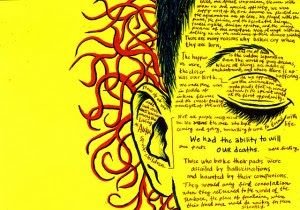Knowledge and Wisdom by Bertrand Russell (Themes, Summary, Analysis and Interpretation) - Grade 12- English NEB
Bertrand Arthur William Russell (1872–1970) was a British philosopher, logician, essayist and social critic best known for his work in mathematical logic and analytic philosophy. His most influential contributions include his championing of logicism (the view that mathematics is in some important sense reducible to logic), his refining of Gottlob Frege’s predicate calculus (which still forms the basis of most contemporary systems of logic), his defense of neutral monism (the view that the world consists of just one type of substance which is neither exclusively mental nor exclusively physical), and his theories of definite descriptions, logical atomism and logical types.
In this essay, Russell differentiates between knowledge and wisdom. Knowledge and wisdom are different things. According to him, knowledge is defined as the acquisition of data and information, while wisdom is defined as the practical application and use of the knowledge to create value. Wisdom is gained through learning and practical experience, not just memorization.




Comments
Post a Comment